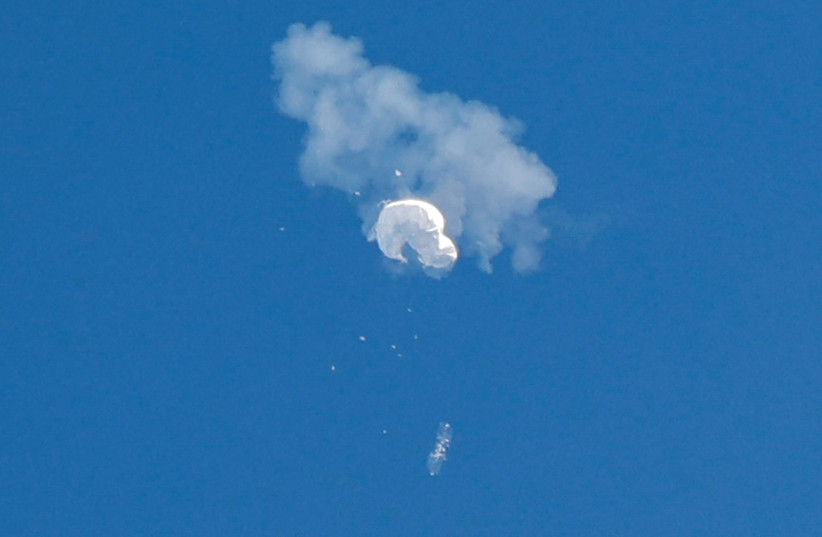Is China exhibiting hostile intentions towards its neighbors? - opinion

On the one hand, there has been the view that China can be brought around and become a diplomatic partner of Washington.
The US has been understandably obsessed with the entry of a high-altitude Chinese surveillance balloon into American airspace and its flight across the United States. It hovered over US land-based missile facilities in Montana. The balloon then crossed the US to the Atlantic Ocean, where the US recovered it near South Carolina. Since the breakthrough in ties between the US and China under the Nixon administration, Americans have been of two minds with regard to Chinese intentions.
On the one hand, there has been the view that China can be brought around and become a diplomatic partner of Washington. This perception was particularly felt as long as the Soviet Union still existed and provided the primary threat to the US. It also underpinned the US decision in 2001 to support Chinese membership in World Trade Organization (WTO).
But on the other hand, there has been a concern that China has aspirations to be a hegemonic power in the Western Pacific, in particular, with its construction of artificial islands for naval bases. This also is seen to be evident in the continual growth of the Chinese Navy which surpassed the US Navy in size already in 2020.
A recent article in the Proceedings of the US Naval Institute (January 2023) warned smaller fleets with superior technology rarely have defeated larger fleets. In other words, the US should take no comfort in the belief that its naval technology can offset the growing number of Chinese ships in the Pacific Ocean.
The hard question that any analyst must answer is over the extent to which China today is exhibiting signs that it has hostile intentions towards its neighbors and the states beyond. India is certainly ramping up the size of its fleet, including Indian aircraft carriers, in response to Chinese naval activity in the Indian Ocean.
In 2013, I was hosted by the Central Committee of the Chinese Communist Party to give a talk in Beijing, along with General Uzi Dayan. The organization that served as an intermediary with the Chinese was SIGNAL. Before speaking, we stopped at the Chinese equivalent of the US Army War College. I brought material on Iran’s nuclear and missile programs.
Unexpectedly, a Chinese officer raised his hand and asked me in front of hundreds of his colleagues: “So whose side are you on, our side or the US?” I answered without any prior preparation that we are on the side of the US which is our ally.
Mounting evidence
There is mounting evidence that something has been brewing for a long time in the relations between China and the West. Some 10 or 20 years ago, Israel was grateful to break out of the isolation it experienced in Africa and Asia.
If China was going to be the instrument of a new Israeli diplomatic posture, it appeared at the time, so be it. But while holding the door open for Beijing, if Israel concludes that China has expanding global aspirations, then Israel must voice its concerns.
The writer was director-general of the Foreign Ministry and Israel’s ambassador to the United Nations.
Jerusalem Post Store
`; document.getElementById("linkPremium").innerHTML = cont; var divWithLink = document.getElementById("premium-link"); if (divWithLink !== null && divWithLink !== 'undefined') { divWithLink.style.border = "solid 1px #cb0f3e"; divWithLink.style.textAlign = "center"; divWithLink.style.marginBottom = "15px"; divWithLink.style.marginTop = "15px"; divWithLink.style.width = "100%"; divWithLink.style.backgroundColor = "#122952"; divWithLink.style.color = "#ffffff"; divWithLink.style.lineHeight = "1.5"; } } (function (v, i) { });

